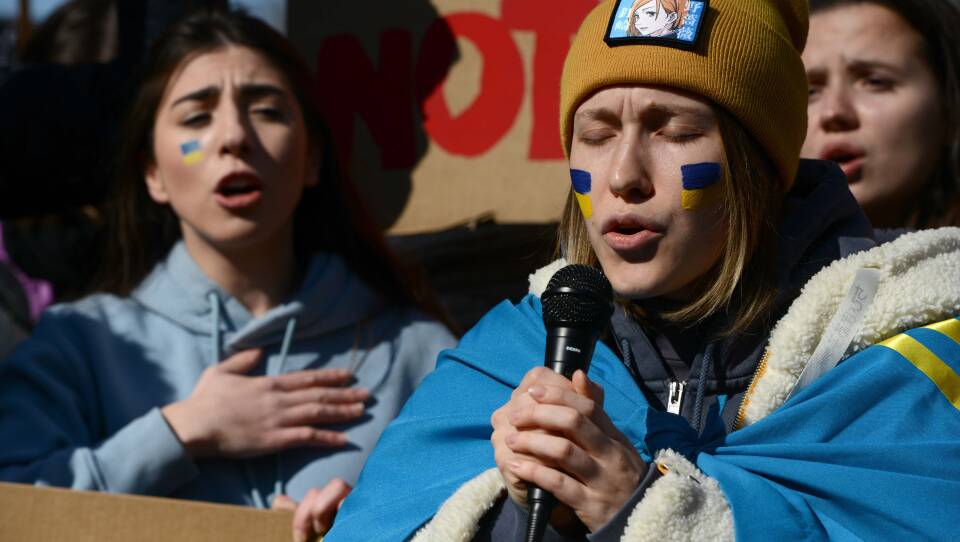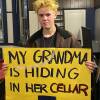In the week following Russia’s invasion of Ukraine, Tetiana Litus, who moved to the United States three months ago, talked with more than 30 friends and family members from Ukraine in just seven days.
“We barely slept, we were constantly on the phone,” she said. “We didn't know what's happening. There was even a time when… we couldn't reach them. That was scary.”
Vsevolod Petriv, president of the Boston Branch of the Ukrainian Congress Committee of America, has also had mixed success in reaching his loved ones in Ukraine. He grew up in the U.S., but has family and friends spread throughout the country. His family held a Zoom call last weekend, but he hasn’t heard from anyone in a day. “That's got me pretty worried,” he said.
Petriv and Litus joined Boston Public Radio to share their experiences witnessing Russia’s invasion of Ukraine from the United States.
More Local News
Litus' family has experienced the war firsthand. Her father, who is 70, decided to join the Red Cross and bring humanitarian aid to wounded civilians and soldiers in Ukrainian cities. “As he told me, there are eight trucks of Red Cross, but right now there is just one left,” she said. “It's his truck, and I'm so worried about him. And green corridors are not established. They are bombing the cars even with a huge Red Cross on the car. So I hope he'll be safe. I call him around three times, four times a day.”
Litus’ mother, meanwhile, fled west from Kyiv to a small town when Russia started bombing the capital, only to face more bombings there. She was forced to move farther west. Other relatives who are doctors started a humanitarian hospital in western Ukraine. “People are trying to stay strong, even though they're scared,” Litus said.
Both Petriv and Litus have been involved in local organizing efforts to support Ukraine, and said they have been surprised by the support from others. Through his work with the Ukrainian Congress Committee of America, Petriv is helping coordinate groups to meet with legislators and organize donations. Litus started a group to help organize rallies.
“Maybe the sanctions are not big enough to have such a great, such a big influence to support us in a higher way, in a bigger way,” Litus said. “But still, that's just amazing how the world is responding. We didn't expect that. So we are very, very grateful at this point.”
Both said they maintain hope as Ukrainians fight back against the Russian invasion. Petriv pointed out a positive sign — how long it is taking for Russian forces to travel through the country. He compared it to taking 10 days to travel from the Berkshires to Interstate 495.
“The ultimate hope is that the support for Putin collapses, and he'll back out,” he said.
Petriv also highlighted Ukraine’s resilient history. He was born in the U.S. because his parents were involved in the Ukrainian struggle for freedom in 1917. They later got married in a displaced persons camp after World War II before moving to America.
“To be honest, I don't know,” he said, wondering about what will happen. “I will say that Ukraine will survive, because it has survived for centuries.”
Litus agreed. “Throughout the history of Ukraine, we had to always stand up for our freedom,” she said. “I really believe that it's a Ukrainian mentality to try to protect their land, to try to protect all the people.”
Vsevolod Petriv is president of the Boston Branch of the Ukrainian Congress Committee of America. Tetiana Litus is a 24-year-old Ukrainian who moved to the U.S. a few months ago, and is involved in organizing protests in support of Ukraine.









